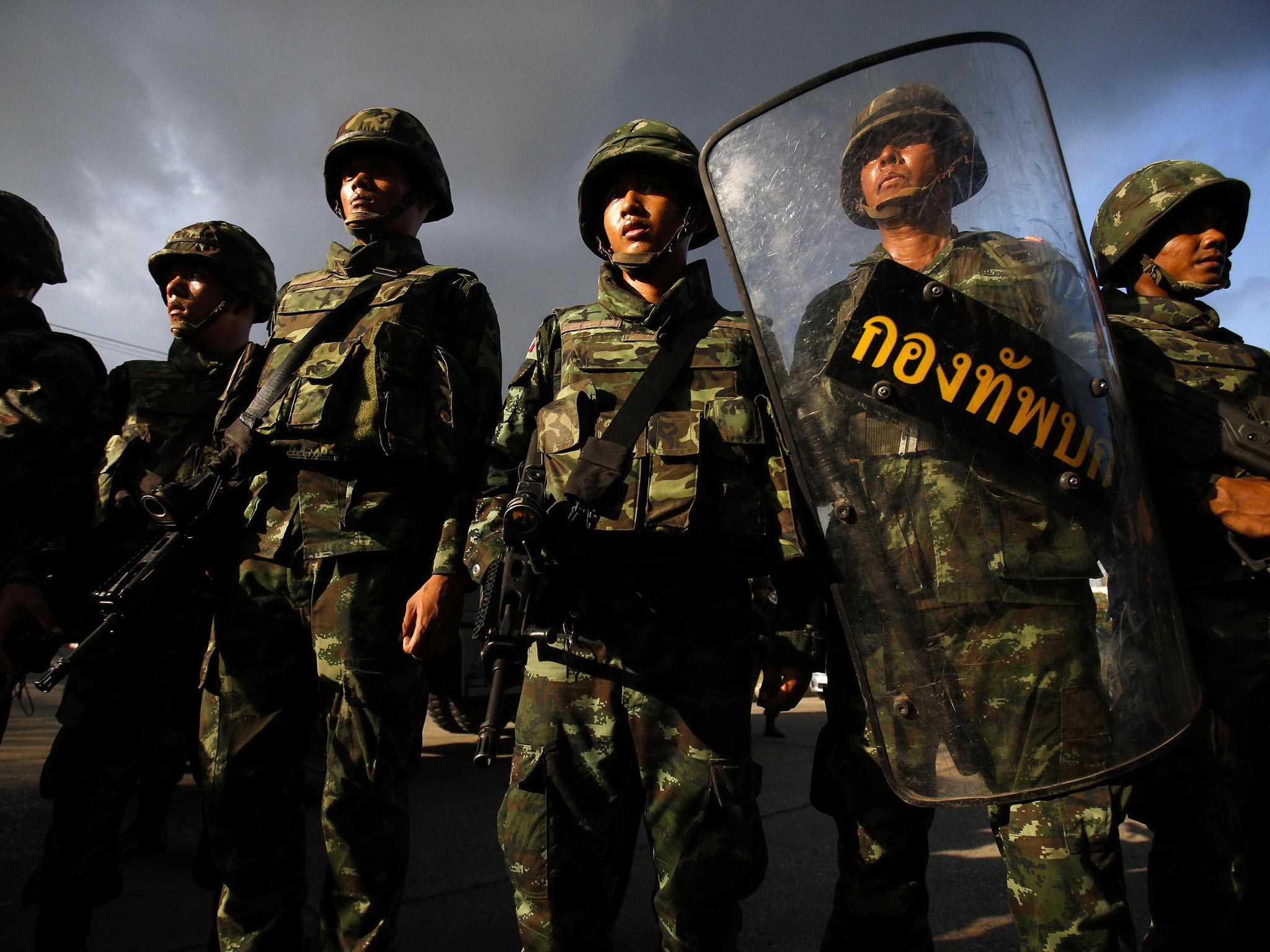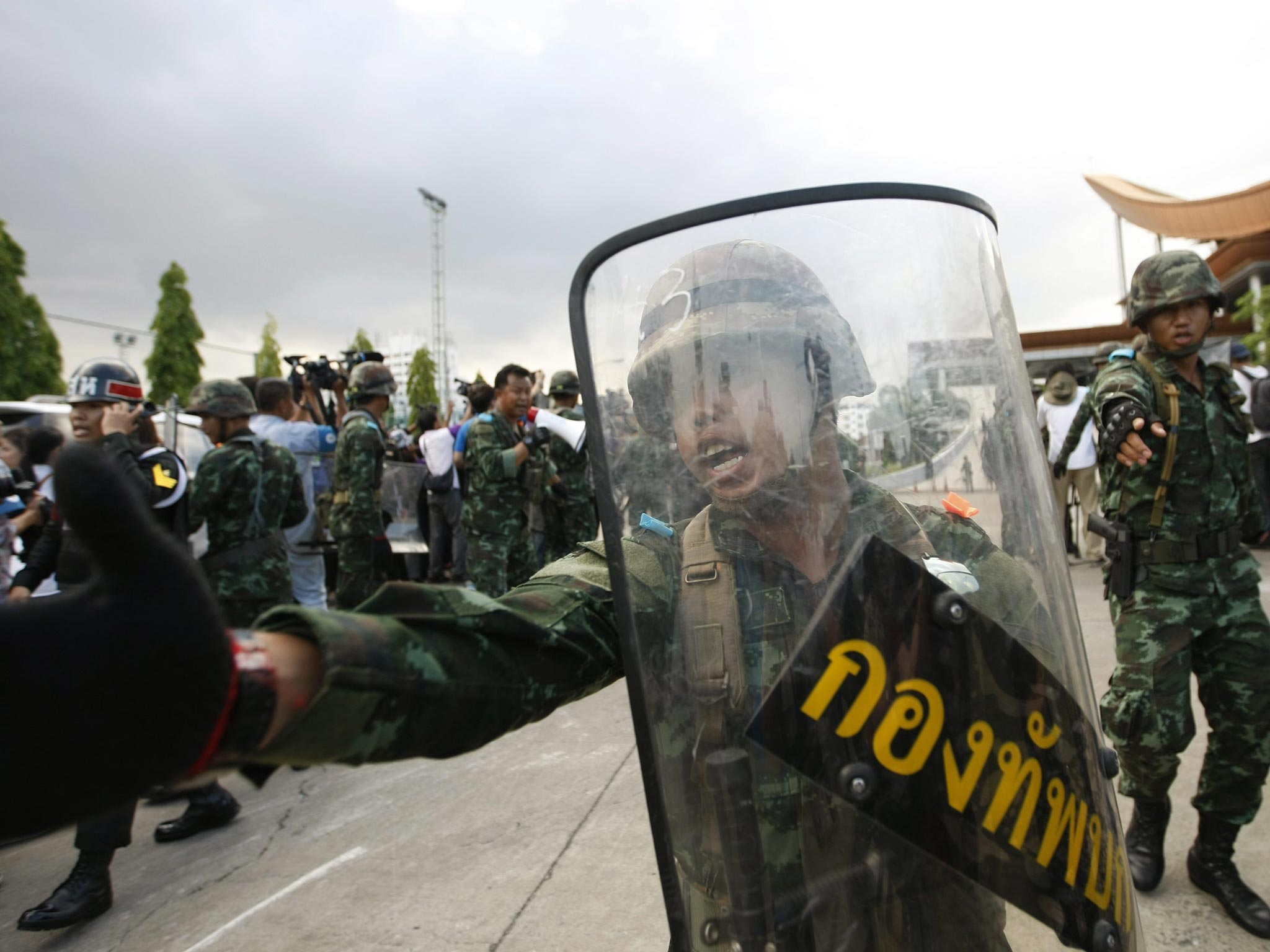Thailand coup d'etat: Profile of General Prayuth Chan-ocha

Back in 2006 when the Thai army launched its previous coup, Prayuth Chan-ocha was a Maj General, a powerful figure who helped army chief General Sonthi Boonyaratglin seize control. Four years later, when the military stepped in to end protests by Red Shirts demonstrators and killed more than 90 people, he was again in a senior role.
In this latest military drama playing out on the streets of Bangkok and elsewhere across Thailand, Gen Prayuth is at the very centre of the action, pitching himself first as a peace-maker who had imposed martial law to help restore order and then as a mediator as he claimed he was trying to secure a compromise among the various factions. “The army intends to bring peace to the beloved country of all Thais as soon as possible,” he had said on Tuesday.
Now, having done away with the civilian government and scrapped the constitution he helped formulate back in 2007, the 60-year-old has appointed himself head of the so-called National Peace and Order Maintaining Council now running the country.
When he was appointed army chief in 2010 he was seen as something a hardline royalist, opposed to the Red Shirt movement that has largely backed the governments of Thaksin Shinawatra and his sister, Yingluck. Yet after he took charge he appeared to reach out to the Red Shirts and made an effort to get along with Ms Yingluck.
“He participated in the 2006 coup, led the repression of Red Shirts in 2010 and advocated even tougher action against the Red Shirts from 2009-2011. Under Yingluck, he appeared to be neutral,” said Dr Paul Chambers, of the Institute of Southeast Asian Affairs at Chiang Mai University. “But as it turns out now, he was playing a game with the Shinawatras. On 20 May, with the application of martial law, he has shown his true arch-royalist colours.”
Mr Prayuth has had a notoriously difficult relationship with the media, often snapping at reporters and chastising them for asking “stupid” questions. Just this week, he advised one reporter to “go to the ear doctor” after asking about whether or not elections could proceed.
Mr Prayuth is part of the army's most powerful faction, known as the Eastern Tigers. His term in office was due to end in September but there is speculation now that if he does stand down as acting prime minister, he could be allowed to stay on as army chief for another year.
In May 2011, a prominent opposition MP and Red Shirt leader, Jatuporn Promphan, was imprisoned after being charged with making comments deemed to be disrespectful of the monarchy - a very serious offence in Thailand and one which carries with it the risk of 15 years in jail.

The BBC reported that the case against Mr Jatuporn, one of the Red Shirt leaders detained on Thursday, was prompted by a complaint from Gen Prayuth. He insisted at the time that his motive was not political but rather to protect the monarchy. Further questions were asked about him in the summer of 2011 when Thailand was holding an election.
The general said that he believed people should vote for “good people”, a comment that was widely seen as an attack on Ms Yingluck. As it was, she went on to win.
Join our commenting forum
Join thought-provoking conversations, follow other Independent readers and see their replies
Comments
Bookmark popover
Removed from bookmarks